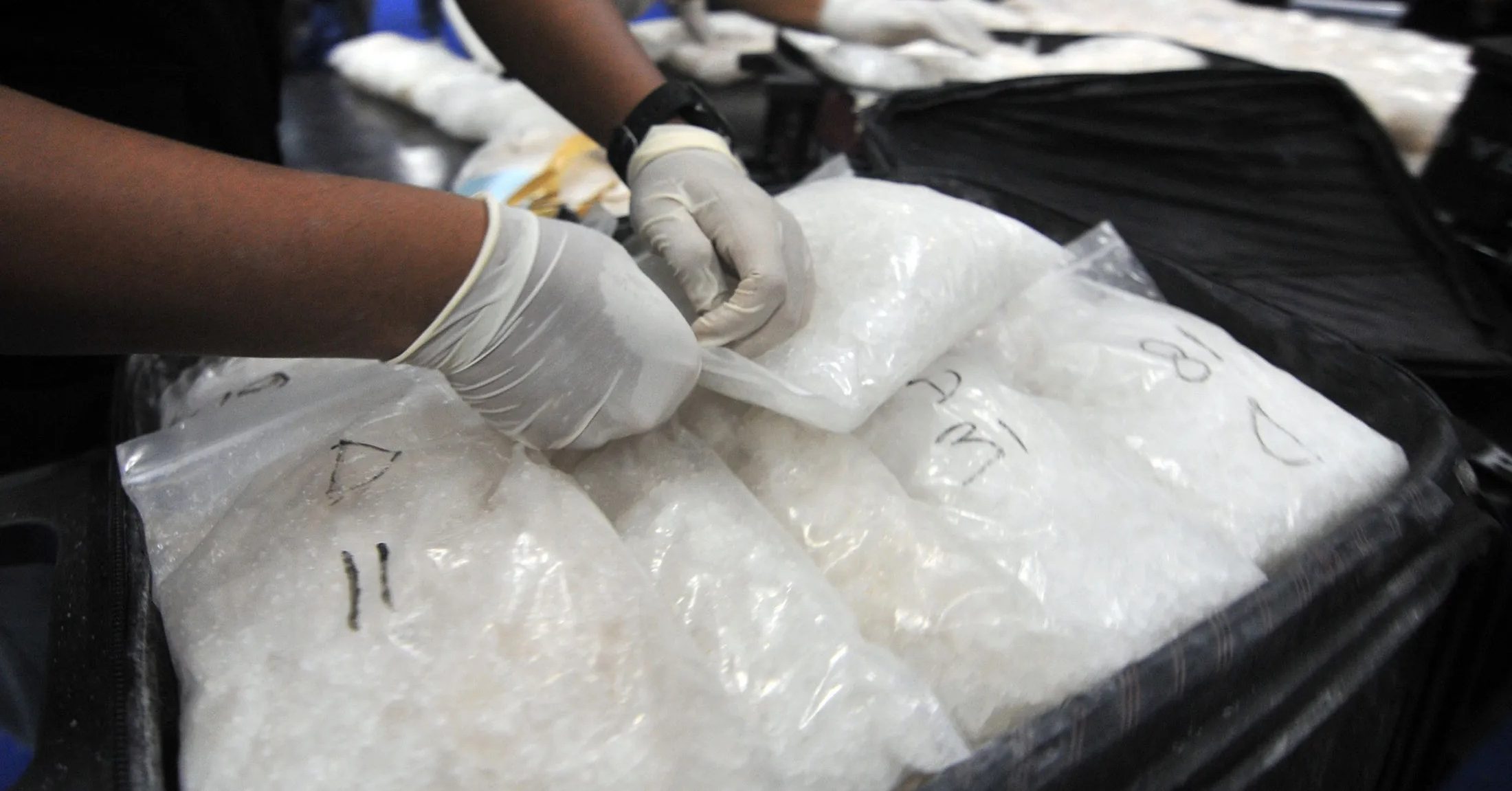A drug once confined to back alleys and whispered deals has thrust itself into the center of Egyptians’ lives. Known locally as shabu, methamphetamine is a synthetic stimulant that is cheap to make, easy to obtain, and devastating in impact.
Often referred to as the “street drug,” shabu has taken root across Egyptian governorates where its trade flourishes despite repeated crackdowns.
Nearly 6 percent of Egyptians between the ages of 15 and 64 report using narcotics, with a startling concentration among teenagers and young adults, Amr Osman, Manager of the National Fund for Drug Control and Treatment of Addiction, revealed in 2023.
Cannabis remains the most widely consumed substance, followed by tramadol, an addictive opioid pain medication. Yet methamphetamine use is climbing at an alarming pace. In 2020, the prevalence of synthetic drugs such as shabu increased from 7 percent to 17 percent. Notably, 58 percent of Egypt’s users still live with their families, a figure that reflects the absence of prevention and supervision in homes.
Shabu’s spread has been fueled by a mix of economic despair, opportunistic trafficking, and a growing local industry. The spread has been particularly pronounced in communities already strained by economic hardship. With rising unemployment and declining living standards, many young Egyptians turn to drugs as a form of escape, creating a fertile environment for shabu to flourish.
Its history stretches back to the 1920s, when crystal methamphetamine was synthesized in Japan for its potential medical uses. It gained popularity as a performance enhancer for pilots during World War II to go on long missions. Today, however, shabu is no medical tool. Crystallized and smoked or ingested, it delivers a powerful high but leaves in its wake paranoia, aggression, and in many cases, violence.
A study at the Ismailia Mental Health Clinic found that users often suffer from aggression, depression, anxiety, and sharp cognitive decline. Worldwide, meth addiction has become closely linked to psychosis, memory loss, erratic behavior, and long-lasting damage to the heart and nervous system, which are effects that linger long after the drug has worn off.
In Egypt, where the street price once hovered around EGP 2,500 (about USD 50), demand has pushed trafficking networks to expand, and the price has dropped to between EGP 500 to 1,000 (about USD 10 to 20).
As demand increased, production shifted from foreign supply chains to makeshift labs inside Egypt, where raw materials imported from China and India are used to manufacture the crystal-like narcotic.
The way shabu is now produced makes the problem even more alarming. Unlike regulated pharmaceuticals, it is often cooked with unknown chemical substances, leaving users exposed to a toxic and unpredictable mix.
However, methamphetamine’s appeal lies in its chemical effect as much as its distribution. Derived from compounds found in over-the-counter cold medications, the drug belongs to the family of amphetamine-type stimulants, which produces an intense, euphoric high similar to ecstasy.
Crystal methamphetamine leaves a trail of devastation that extends well beyond its immediate high. Without decisive intervention, the drug’s spread could worsen an already dire social crisis, leaving more communities vulnerable to tragedy, experts warn.
Drug-Fueled Violence
For dealers, it is a lucrative business. For the public, it is an unfolding nightmare that blends addiction, profit, and crime.
After a heated argument in 2021, a young addict murdered his father with a knife in Ismailia. That same year, a man electrocuted his 10-year-old son, further fueling public fears over the drug’s role in extreme violence.
The pattern has spread across governorates. In Qena, a young man killed his three siblings during a family dispute in 2021. In the same year in Fayoum, an addict murdered his wife, her child, and her sister. More recently, in 2024, a man in Assiut stabbed his three-year-old daughter to death, drawing widespread outrage.
In 2025, Luxor became the scene of one of the country’s most horrifying crimes. Under the drug’s influence, a man killed and decapitated another person in broad daylight, parading the head through the streets
Amira Saber, a member of Egypt’s Parliament and deputy chair of the Social Democratic Party, filed an inquiry earlier this year with the prime minister and health minister over the surge in drug-related crimes, particularly involving shabu, and their grave social and health consequences.
Saber noted that shabu poses a serious risk to public health, national security, and the future of the youth. While she acknowledged efforts by the Ministry of Interior to pursue traffickers and dealers, Saber called for a broader and more coordinated governmental response to slow this drug’s rapid spread.
Egypt partnered with Russia and the United Nations Office on Drugs and Crime earlier in 2025 on a trilateral initiative to strengthen its law enforcement capabilities against illicit drug trafficking, according to the United Nations Office on Drugs and Crime (UNODC).
Meanwhile, Article 39 of the Penal Code sets a minimum one-year prison term and a fine of EGP 1,000 to 3,000 (USD 21 to 63) for drug use, with harsher penalties for possession of substances like cocaine or heroin listed in Schedule 1.
Initiatives such as the “You Are Stronger Than Drugs” campaign, launched in 2018, bolstered by schools, youth centers, and volunteer networks, are helping spread awareness and empower young people to resist the lure of synthetic drugs.
In 2025, Egypt unveiled a new partnership with Russia and the United Nations Office on Drugs and Crime aimed at strengthening its campaign against illicit drug trafficking. The effort comes as shifting methamphetamine routes and a surge in global seizures underscore how synthetic narcotics are spreading into previously untouched regions.
The struggle against shabu is part of a wider regional and global contest over power, public health, and the futures of young Egyptians are caught in its wake.







Comments (0)